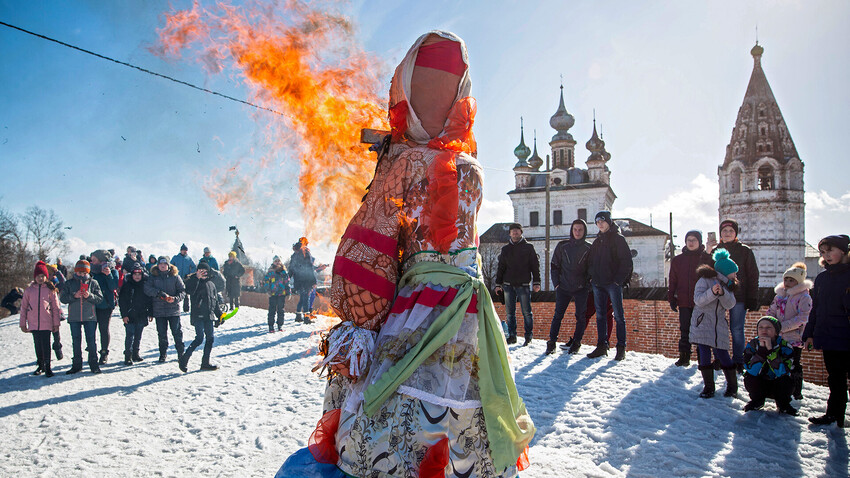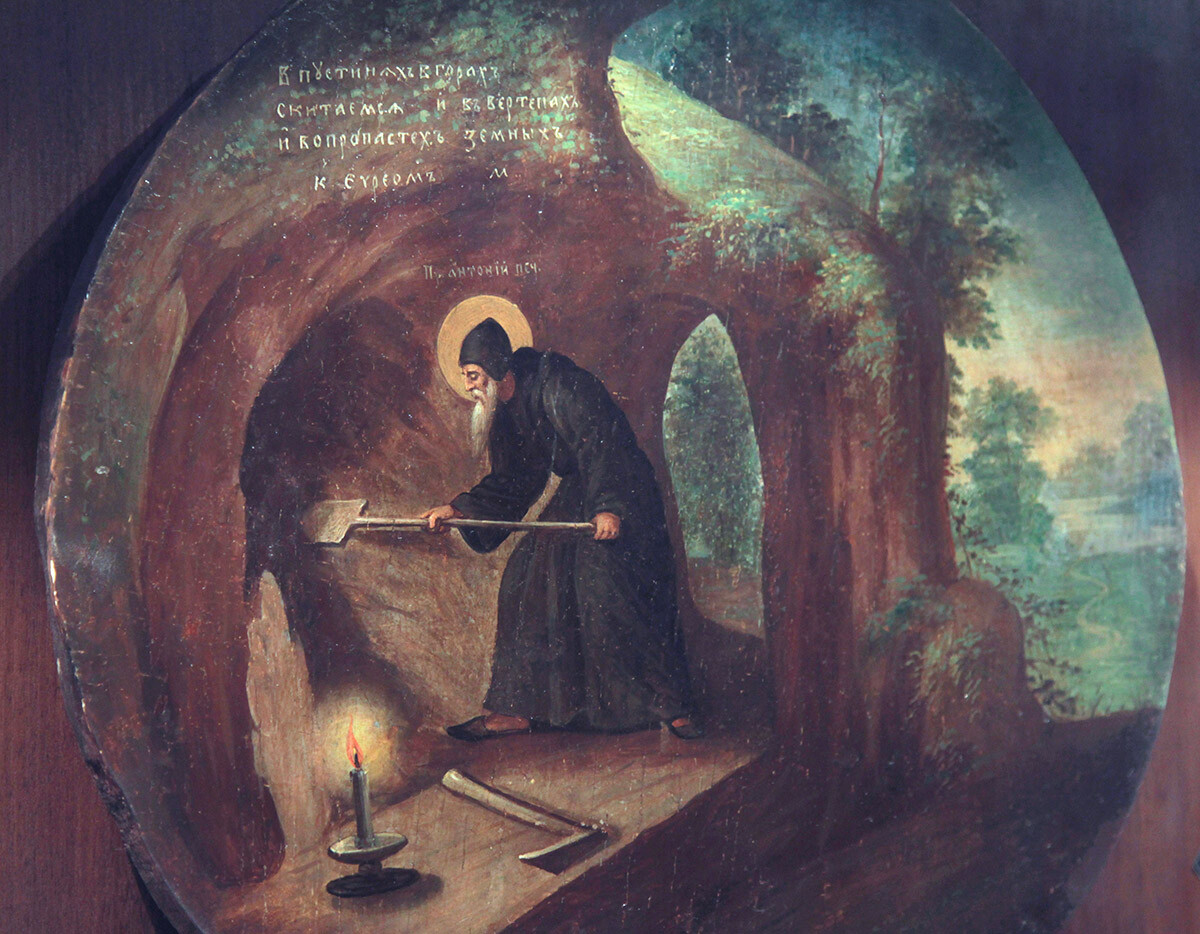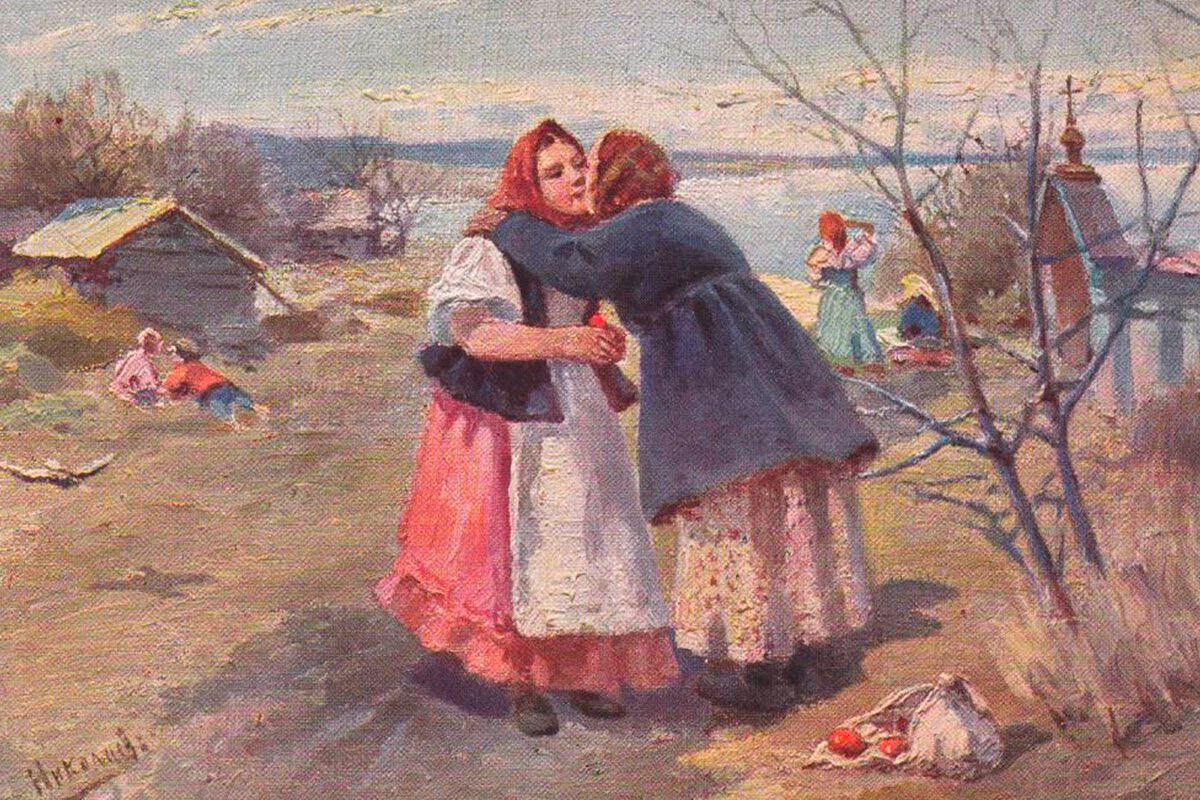
Burning a Maslenitsa effigy in Yuriev-Polskiy, Vladimir region, Russia
Ilya Pitalev/SputnikThis tradition came from the life of Egyptian monks, in the first centuries AD. They spent the whole Great Lent alone, withdrawing into deserts and caves – because Jesus himself fasted in the desert for 40 days, as the Bible says. Not all of the monks returned to the monastery at Easter – some died of hunger, some could be torn by wild animals.

Anthony of Kiev, also called Anthony of the Caves (983-1073), icon of the 19th century, Russia
Grigory Vasilenko/SputnikTherefore, parting on the last Sunday before the Lent, to meet only at Easter, the monks said goodbye to each other, realizing that they might never see someone again, and asked each other to forgive all their wilful or unwilful offences. "For, if you forgive other people when they sin against you, your heavenly Father will also forgive you. But, if you do not forgive others their sins, your Father will not forgive your sins," says the Gospel of Matthew.

A Russian Easter postcard, 19th century
Public domainThe Orthodox Church prescribes that one should confess and receive Holy Communion on the Forgiveness Sunday morning and, only then, ask their loved ones to forgive them. After asking forgiveness and receiving the answer: "God will forgive", Russians usually kiss three times as a sign of reconciliation and friendship.
Among the Russian people, the Forgiveness Sunday coincides with the end of Maslenitsa celebrations.On this day, before dinner, it was customary to go to the cemetery to remember recently deceased relatives and also to "ask their forgiveness", although this is not prescribed by the church – apparently, this is a relic of pagan traditions, the same as the burning of the Maslenitsa effigy, with which supposedly "burned" all the sins committed during the Maslenitsa celebrations (also a pagan belief).
On this Sunday, the "rite of forgiveness" – a special church service – is performed in the Orthodox churches during the evening service. During this service, the priest addresses the parish with a sermon about the need to ask forgiveness from each other, the ways to pure-heartedly forgive offences and the priest himself asks forgiveness from all people present, to which they respond: "God will forgive you, holy Father. Forgive us sinners and bless us, too." Thus, having reconciled with each other, Orthodox Christians begin the Lenten season.
If using any of Russia Beyond's content, partly or in full, always provide an active hyperlink to the original material.
Subscribe
to our newsletter!
Get the week's best stories straight to your inbox